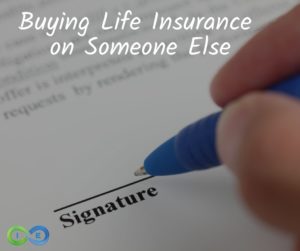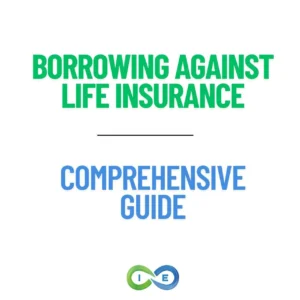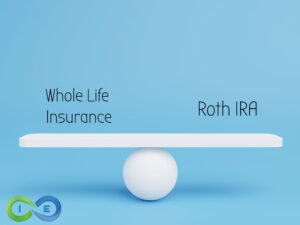Since it made its grand entrance into the U.S. in early 2020, COVID-19 has impacted a multitude of industries – and not surprisingly, life insurance has been one of the hardest hit. Given its rapid and rising death toll, the Coronavirus (and its array of variants) has led to record death benefit payouts for insurers.
With no definitive end of COVID in sight, consumers may need to take a closer look at whether or not they are adequately protected (or if they have any life insurance protection in place at all), and if not, what to do about it if coverage becomes more expensive and more difficult to qualify for down the road.
COVID-19 and Life Insurance Payouts
Since the COVID-19 pandemic initially entered the United States in 2020, life insurance death benefit payments have been on the rise. In fact, according to the American Council of Life Insurers, death benefit payments rose 15.4% in 2020, to $90.43 billion – mostly due to the health crisis. This was the biggest one-year increase in death benefits paid out by U.S. life insurers since the 1918 influenza epidemic more than a century ago.
Overall, there were 1.8 million deaths reported worldwide in 2020 that were attributed to the COVID-19 pandemic. However, according to the World Health Organization (WHO), the actual death toll may actually be closer to 3 million (for 2020), because some parts of the world lack the technology to properly register deaths.
This increase in deaths – and the corresponding life insurance death benefit payments – continued throughout 2021. In fact, the CDC (Centers for Disease Control and Prevention) has indicated that 2021 would be the deadliest year on record in the U.S., with COVID-19 becoming the nations number 3 cause of death, just behind cancer and heart disease.
Even with the significant increase in death benefit claims, though, things could have been much worse for life insurance companies – at least at first. For instance, many of the initial victims of the Coronavirus were older individuals, who typically have smaller policies.
Based on data from the CDC, roughly 81% of the 377,883 COVID-19 related deaths in the U.S. in 2020 were people who were age 65 and older.
Non-COVID Related Deaths are Also on the Rise
Whether or not it is a coincidence, non-COVID related death figures are also rising significantly over the past couple of years. According to the CEO of insurance company OneAmerica, the death rate is up a stunning 40% from pre-pandemic levels among working-age people.
Scott Davidson, head of this insurer stated, “We are seeing, right now, the highest death rates we have seen in the history of the business – not just at OneAmerica. The data is consistent across every player in that business.”
He is referring to those who fall into the 18 to 64 age range, many of whom are covered by group life insurance plans through their employers. Most of these claims being filed are not classified as COVID-19 related.
OneAmerica is also seeing an “uptick” in both short-term and long-term disability insurance claims. Unfortunately, given the unprecedented cost of such claims, the expense will likely be passed on to the participants in employee benefit plans by way of higher premiums.
Due in large part to stress – which can lead to numerous physical and mental conditions – along with some of the lasting health-related effects of COVID-19 survivors, average health in the U.S. has declined during the pandemic.
Experts have also stated that drug overdose deaths in the United States – which surpassed 100,000 in the one-year time period between May 2020 and April 2021 – would likely have an impact on the total 2021 U.S. death figures.
Does Getting COVID-19 or the Vaccination Impact the Payment of Life Insurance Benefits?
While life insurance will pay out death benefits if an insured dies due to COVID-19, there are still some questions that linger in other related areas, such as whether or not being vaccinated will impact claims and/or approval for new coverage.
The COVID-19 vaccines (and associated boosters) have caused much controversy in terms of whether or not they actually help to shield against the virus and/or if they could cause current or future side effects.
In the spring of 2021, some media posts claimed that life insurance companies were denying coverage and death benefit payouts to those who had received a COVID-19 vaccine. But insurance industry groups, state regulators, and individual insurance carriers have all stated that vaccination status of an applicant is not a factor in life insurance.
It is important to note that, even though millions of individuals received the COVID-19 vaccination in 2021, just simply having the vaccine is no guarantee that an individual won’t contract COVID-19.
Insurers want policyholders (and potential future policyholders) to know that whether someone has received a COVID-19 vaccine is not a factor in whether or not a life insurance carrier will pay out a death benefit claim.
There are, however, some other situations that could have an impact on a life insurance claim. For instance, if an insured has only accidental death and dismemberment (AD&D) coverage – which pays only if death is the result of certain types of accidents – passing due to an infectious disease like COVID-19 would not be covered.
Also, based on information from the Insurance Information Institute (III), an insurance industry trade group, it is also possible that some critical illness or “dread disease” policy claims may not pay out if an insured dies due to COVID-19 or one of its variants.
These refer to policies or riders on life insurance policies that cover only deaths that are due to specified conditions, such as cancer. Therefore, unless a virus such as COVID is actually listed on the coverage, it is not likely to pay out in these cases.
It is also important to make sure that if you already have life insurance coverage in place, you keep up with the premium payments. Most insurers offer grace periods of 30 days after the premium due date has passed in order to keep the policy in force. But after that, if the premium remains unpaid, you run the risk of the policy being cancelled and losing the coverage altogether.
How Would Your Loved Ones Fare with Your Current Life Insurance Coverage?
If the unexpected were to occur – via COVID-19 or any other life-threatening incident – would your family struggle financially without your income and/or other financial support that you provide?
Even for those who are currently young and in good health, unanticipated accidents and illnesses can – and sometimes do – occur. So, it is wise to have an added financial cushion in place for those you may leave behind…just in case.
Many people have a false sense of security because they are covered with life insurance through an employee benefits plan. Unfortunately, though, the amount of this protection is typically not nearly enough for a participant’s actual financial needs.
Consider this – if your goal in purchasing life insurance is to replace lost income for your survivors, how long would $50,000 or $100,000 last them?
While these funds may be used for paying for funeral and other final expenses, it could fall far short if the goal is to replace the insured’s lost income. In this instance, many survivors will use the funds from the death benefit and invest the into an interest- or income-producing financial vehicle, such as a certificate of deposit (CD).
But, given today’s low-interest rate environment, the best 5-year CD rates (as of January 21, 2022) are less than 1.5%. So hypothetically, a $500,000 investment in this type of instrument would only bring in roughly $7,500 per year.
Would that be enough for your survivors to live on?
The answer is, not likely.
Just simply having a random amount of life insurance isn’t a good strategy, then, because it could end up causing substantial financial struggle in the future for those you love.
That’s why it is essential for you to determine your more exact life insurance needs – as well as to update this figure if you have any major life changes that take place, such as marriage or divorce, the birth of a child, and/or the purchase or sale of a home.
What to Expect If You Purchase Life Insurance During the COVID-19 Pandemic
If you do opt to purchase life insurance (or increase the amount of your current coverage) during the COVID-19 pandemic, what can you anticipate throughout the process?
One area that many insurers have adjusted is their underwriting.
Life insurance underwriting looks at information regarding an applicant’s current health status, as well as health and family health history, medications taken, prior surgeries, lifestyle, and other factors in order to determine how much of a risk they may be taking on if they approve the individual for the coverage.
Today, many insurers are also reviewing applicants’ driving history, financial records, and credit score in order to obtain a better idea of how responsible (or reckless) an individual may be. All of these factors can also determine how much premium will be charged for the policy.
A number of insurance carriers have now added COVID-19 specific questions on new life insurance applications – and some have even created a separate COVID-19 questionnaire in addition to the application for new potential insureds.
Some of these questions may ask whether or not, within the past 30 days, the applicant has:
- Tested positive for the Coronavirus
- Been advised to quarantine or self-isolate
- Had any of the symptoms of the Coronavirus
- Been in direct contact with someone who was either diagnosed with, or is/was suspected of having the Coronavirus
As always, those who have certain health conditions like high blood pressure, diabetes, or asthma may be considered more risky to insurance carriers.
Such individuals – as well as those who have any type of compromised immune system – may be required to provide more health information and/or undergo a medical examination before the insurer approves or denies coverage. The same holds true for those who are in the older age categories, such as 70 and over.
Likewise, most life insurance policies include a feature known as the “contestability period” during the first two years that the coverage is in force. This means that the insurer can scrutinize the policy application more closely if the applicant dies during that time – and if it finds any inconsistent information, it is possible that the claim could be denied. With that in mind, honesty is always the best policy when completing an application for life insurance.
Is Now the Right Time to Purchase (More) Life Insurance Protection?
Given the substantial increase in the death rate in nearly all age groups over the past two years – and with no clear end in sight – does it make sense for you to purchase life insurance or increase the amount of protection that you currently have in force?
According to recent statistics, many people believe that now is a good time to purchase life insurance or to increase the coverage that they already have. For instance, brought on by the fears of the pandemic, a record $3.3 trillion in life insurance coverage – more than 43 million policies – was purchased in 2021.
Given this higher demand, though, along with more death benefit payouts, life insurance premiums are also continuing to rise. With that in mind, it is recommended that anyone who is considering a new policy or an increase in life insurance coverage apply sooner rather than later.
Doing so could not only help to lock in a lower premium rate, but it could also help to reduce the chances of not having enough financial protection if an unexpected illness or accident arises in the future.
Life insurance isn’t purchased just for income replacement, either. This flexible financial vehicle could be a key component in your overall portfolio for a wide range of other needs, too, such as:
- Debt payoff
- College funding
- Estate planning
- Asset transfer
- Probate avoidance
- Payment of final expenses
- Business succession
- Funding for long-term care and/or other healthcare expense needs
- Tax-free retirement income supplement
There are many different types of life insurance available in the marketplace today, though, and not all of them are exactly the same. Likewise, there is a multitude of factors to consider when narrowing down the right plan and insurance carrier for your specific needs.
So, it is recommended that you first discuss your unique situation and objectives with a life insurance specialist before you commit to purchasing any type of coverage, as it could prevent you from making a long-term (and expensive) commitment on the wrong plan.
If you would like to set up a time to discuss whether or not you have any “gaps” in your family’s financial protection, feel free to contact Insurance and Estates at (877) 787-7558, or you can send an email with any questions that you have by going to info@insuranceandestates.com. We look forward to helping you provide financial peace of mind to those you love.



